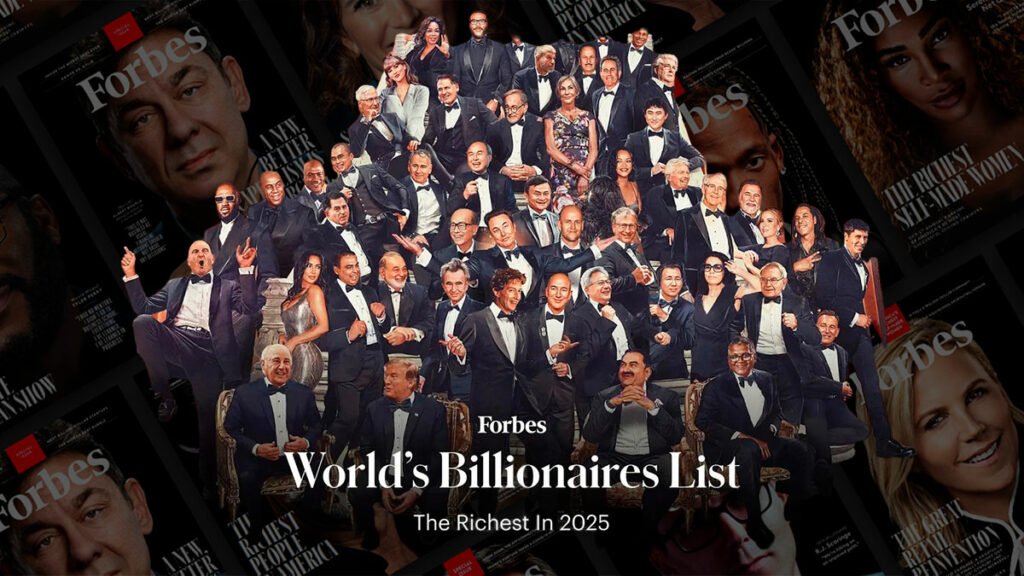Tag: billionaire book list 2025
Why 80s-Era Billionaires Differ from Today’s Titans
Why 80s-Era Billionaires Differ from Today’s Titans — Reading Habits, Mindset, and the Books They Love
The shift: then vs now
Billionaires of the 1980s often inherited industrial empires, built wealth in manufacturing, oil, finance, or scaled traditional businesses in a slower, capital-intensive world. By contrast, many of today’s billionaires built fortunes in technology, software, consumer platforms, and new-economy sectors — industries that reward scale, network effects, and rapid global distribution.
Today’s billionaire list is larger and younger in some pockets. Forbes’ 2025 rankings show the global billionaire population rising into the thousands, with most net worth concentrated in tech and finance.
Why many modern billionaires were born in the 1970s–80s
A noticeable share of today’s wealth creators are Gen X (born ~1965–1980) and early millennials (born early 1980s) — people who came of age as personal computing, the internet, and mobile tech exploded. Those technologies enabled faster company creation, global customer reach, venture capital funding, and rapid company scaling. Forbes and several analyses show that a large portion of today’s richest people made fortunes in tech and finance — fields that matured in the 1990s–2010s and attracted entrepreneurs born in the 1970s–80s.
While youthful billionaire success stories exist, most billionaires are still concentrated in the 50–79 age range (many Gen X and Boomers). In short, Gen X and early millennials represent a strong share of new wealth creation today — but the billionaire club still contains many older, established names.
Three reasons this cohort (70s–80s births) dominates new billionaire creation
1) Timing + technology
They were old enough to learn new technologies during formative years (early career), but young enough to found startups during the web and mobile booms. That timing gave them both technical literacy and risk appetite.
2) Faster scale, cheaper capital
Cloud infrastructure, global distribution channels, and venture funding let small teams scale quickly. Businesses that once required massive capital (like retail or manufacturing) could be launched and scaled by nimble tech firms.
3) Mindset: learning, iteration, and reading
Many modern founders adopt a deliberate habit of fast learning and iteration. Reading — especially non-fiction, business, and self-development books — shows up repeatedly in interviews with successful entrepreneurs. For example, Bill Gates (often cited) reads ~50 books a year and recommends many nonfiction titles; Warren Buffett attributes much of his edge to decades of voracious reading.
Do billionaires really read hundreds of books a year?
There’s a popular myth that billionaires read 500 books a year (≈41 per month). In reality, documented habits vary:
- Bill Gates reads roughly 50 books a year.
- Warren Buffett spends large parts of his day reading (financial filings, newspapers, books) and advocates heavy reading as “compound knowledge.”
- Surveys and magazine writeups suggest many ultra-successful people read a lot — perhaps 30–70 books per year — but 500 is an outlier claim and unlikely for anyone with full-time operational responsibilities without a team to summarize content.
Bottom line: consistent, focused reading (weekly or monthly cadence) plus applied reflection matters more than an extreme quantity metric. High performers use reading to mix technical lessons, biographies, strategy, and mental models — not just to accumulate titles.
What kinds of books do today’s wealthy prefer?
Across interviews and lists, certain non-fiction categories recur:
Selected fiction: While less often highlighted, many leaders recommend fiction for empathy and strategic thinking (recent analysis suggests CEOs benefit from fiction reading too).Business Insider
Biographies & history: To understand decisions, failures, and contexts (Buffett, others).Investopedia
Business strategy & management: Practical tactics and company case studies (e.g., Business Adventures).kevinrooke.com
Mental models & decision-making: Books teaching frameworks (e.g., Charlie Munger’s influence, Thinking, Fast and Slow).
Technology & future studies: For founders, books on AI, engineering, systems. (Titles like Life 3.0 appear on billionaire reading lists.)Most Recommended Books
Self-help / performance & productivity: For mindset, focus, and leadership (e.g., Stoic or habits literature).
The most-read / recommended books among billionaires (readable, high-impact list)
Below are titles that repeatedly appear on lists or are publicly recommended by high-profile billionaires. Each is short, actionable, and frequently non-fiction / self-improvement oriented:
- Business Adventures — John Brooks (recommended by Warren Buffett & Bill Gates).kevinrooke.com
- Principles — Ray Dalio (systems & decision frameworks).
- Thinking, Fast and Slow — Daniel Kahneman (decision psychology).
- Zero to One — Peter Thiel (startups & contrarian thinking).
- The Lean Startup — Eric Ries (iteration & build-measure-learn).
- Life 3.0 — Max Tegmark (AI & future frameworks) — appears on billionaire reading lists.Most Recommended Books
- The Innovator’s Dilemma — Clayton Christensen (disruption theory).
- Sapiens — Yuval Noah Harari (big-picture history & context).
- Poor Charlie’s Almanack (Munger compendium) / The Essays of Warren Buffett (for investment mental models).Farnam Street+1
- Atomic Habits — James Clear (systems for small wins and discipline).
(For an extended list and who recommended each title, see curated collections like GoodBooks and FS.blog which compile billionaire recommendations.)goodbooks.io+1
How high-volume reading translates into ideas and wealth
Reading fuels idea density. Successful entrepreneurs don’t just read — they synthesize, test, and act. A few practices matter:
- Active note-taking: Summarize key principles and how they might apply to your business.
- Cross-pollination: Combine ideas from business, history, and tech to spot gaps.
- Rapid prototyping: Test promising concepts quickly to separate signal from noise.
- Networks & discussion: Discuss ideas with mentors; many insights crystallize through conversation.
Thus, while reading alone doesn’t guarantee a billion-dollar idea, it raises the probability of seeing patterns others miss and having the conceptual tools to act.
What authors and aspiring founders should do (practical checklist)
- Read deliberately: pick 2–4 core titles per month and take notes.
- Apply weekly: implement one micro-experiment based on a book’s idea.
- Mix genres: combine biographies, frameworks, and future tech to get robust perspectives.
- Use summaries intelligently: services or assistants can distill books — but rotate in full reads for depth.
- Measure outcome: track which ideas led to measurable progress and double down.
Conclusion — learning > luck
Billionaire narratives often highlight luck, context, and timing — and they are true. Yet, across eras the differentiator that repeats is deliberate learning. The 1970s–80s cohort had a technology advantage and the right timing. What unites many successful people — then and now — is the habit of reading, synthesizing, and applying great ideas. In 2025, books remain one of the highest-ROI learning tools for founders and leaders. Read well, test fast, and build.








